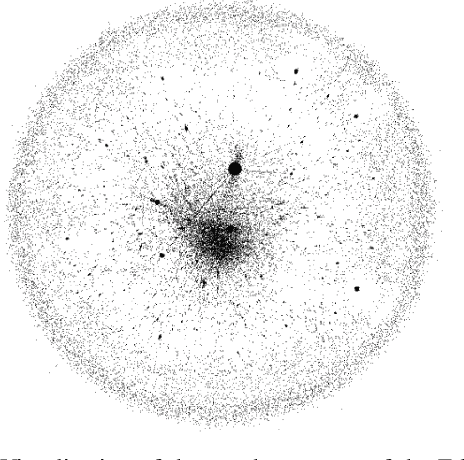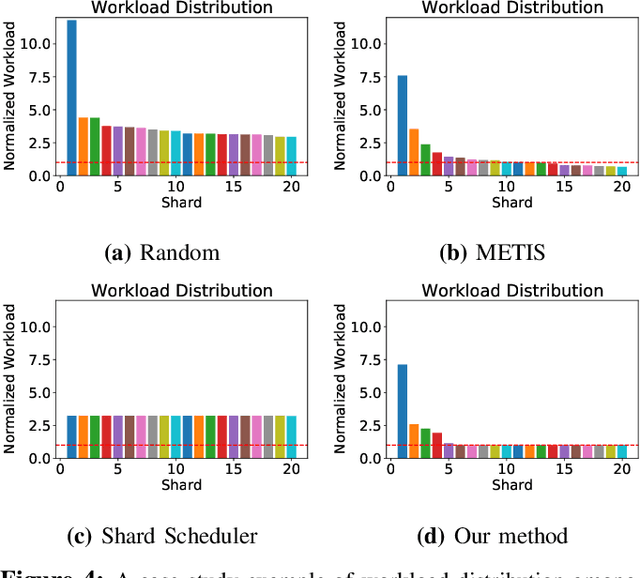TxAllo: Dynamic Transaction Allocation in Sharded Blockchain Systems
Paper and Code
Dec 22, 2022



The scalability problem has been one of the most significant barriers limiting the adoption of blockchains. Blockchain sharding is a promising approach to this problem. However, the sharding mechanism introduces a significant number of cross-shard transactions, which are expensive to process. This paper focuses on the transaction allocation problem to reduce the number of cross-shard transactions for better scalability. In particular, we systematically formulate the transaction allocation problem and convert it to the community detection problem on a graph. A deterministic and fast allocation scheme TxAllo is proposed to dynamically infer the allocation of accounts and their associated transactions. It directly optimizes the system throughput, considering both the number of cross-shard transactions and the workload balance among shards. We evaluate the performance of TxAllo on an Ethereum dataset containing over 91 million transactions. Our evaluation results show that for a blockchain with 60 shards, TxAllo reduces the cross-shard transaction ratio from 98% (by using traditional hash-based allocation) to about 12%. In the meantime, the workload balance is well maintained. Compared with other methods, the execution time of TxAllo is almost negligible. For example, when updating the allocation every hour, the execution of TxAllo only takes 0.5 seconds on average, whereas other concurrent works, such as BrokerChain (INFOCOM'22) leveraging the classic METIS method, require 422 seconds.
 Add to Chrome
Add to Chrome Add to Firefox
Add to Firefox Add to Edge
Add to Edge